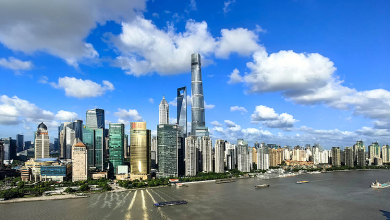Japan removes hurdle for owners of Fukushima complex disaster to run world’s largest nuclear plant
[ad_1]
At its weekly meeting, the Nuclear Regulation Authority (NRA) formally lifted the more than two-year ban imposed on Tepco over its lax safety measures, saying a series of inspections and meetings with company officials has shown sufficient improvement.
The decision removes an order that prohibited Tepco from transporting new fuel into the plant or placing it into reactors, a necessary step for restarting Kashiwazaki-Kariwa’s reactors.
Chinese imports of Japanese carp halt after authorities fail to renew paperwork
Chinese imports of Japanese carp halt after authorities fail to renew paperwork
Following the decision, Tepco said it would continue its efforts to regain the trust of the local community and society at large, while Japan’s chief cabinet secretary said the government would do its part to aid the process.
“The government will seek the understanding and cooperation of Niigata prefecture and local communities, emphasising ‘safety-first’,” Yoshimasa Hayashi, the government’s top spokesperson, said.
The plant on Japan’s northern coast of Niigata is Tepco’s only workable nuclear power plant since the March 2011 earthquake and tsunami put its Fukushima Daiichi plant out of operation.
Now the company is burdened with the growing cost of decommissioning the Fukushima plant and compensating disaster-hit residents.
The NRA slapped an unprecedented ban on the operator in April 2021 after revelations of a series of sloppy anti-terrorism measures at Tepco’s Kashiwazaki-Kariwa plant, the world’s largest nuclear power complex housing seven reactors.
The Kashiwazaki-Kariwa plant was partially damaged in a 2007 earthquake, causing distrust among local municipalities.

Twelve reactors have been restarted under tougher safety standards, and the government wants to bring more than 20 others back online.
Tepco was making final preparations to restart the Kashiwazaki-Kariwa plant’s No. 6 and No. 7 reactors after regulators granted safety approvals for them in 2017. But in 2018, regulators gave the plant’s nuclear security a “red” rating, the lowest given to any operator, resulting in the operational ban.
The case raised questions about whether Tepco learned any lessons from the 2011 Fukushima crisis, which was largely attributed to the utility’s lack of concern about safety.
NRA Chair Shinsuke Yamanaka told Wednesday’s meeting that the lifting of the restrictions is just the beginning, and Tepco is still required to keep improving its safety precautions.
Before Tepco can restart the reactors, it needs the consent of nearby residents.
Before the NRA decision on Wednesday, Niigata Governor Hideyo Hanazumi told reporters that the will of the voters he represents must be taken into consideration.
When that might happen is unknown.
Resources-poor Japan is eager to bring more of its nuclear power plants online to reduce its reliance on imported fossil fuels such as liquefied natural gas.
[ad_2]
Source link






